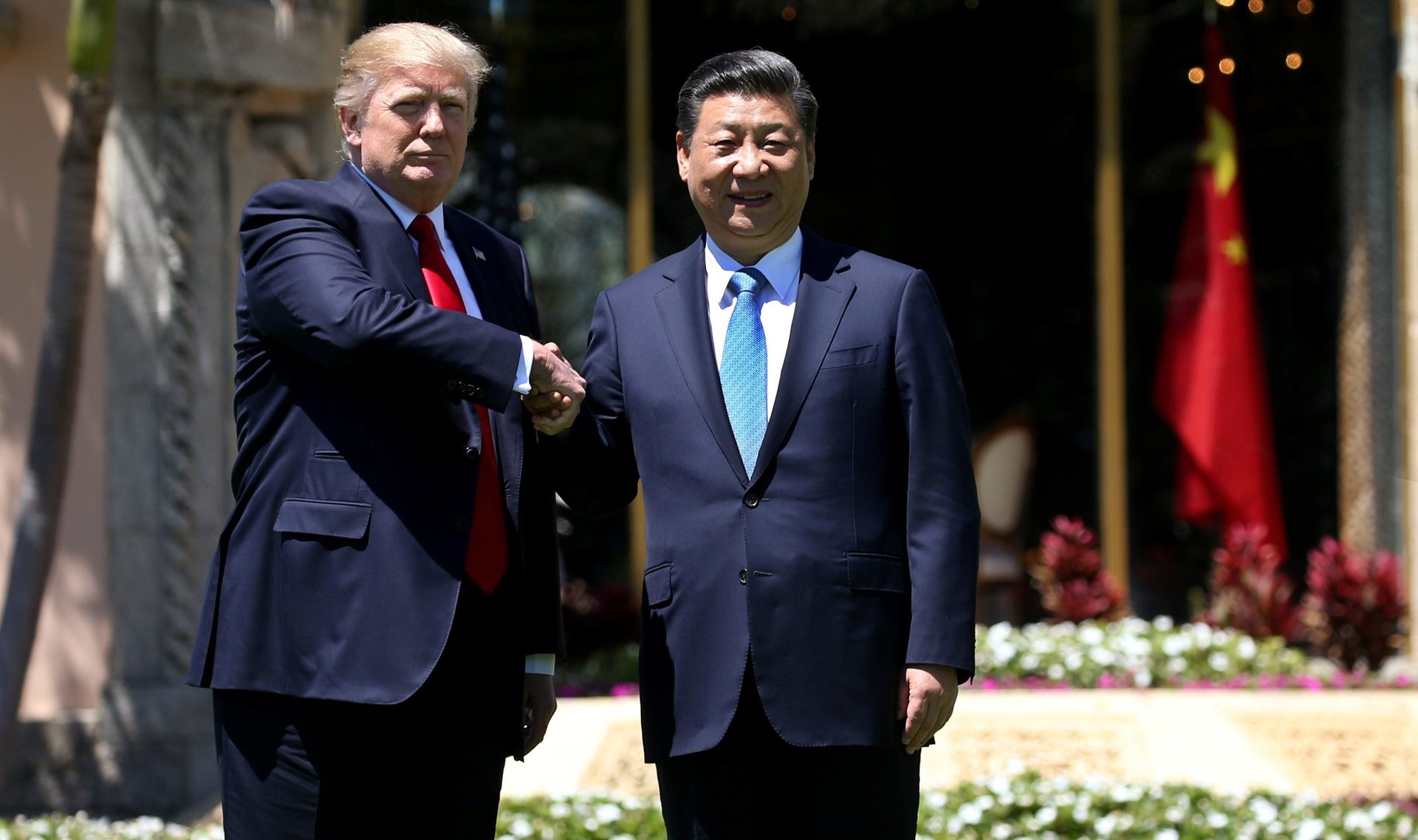Trump’s hopes and disappointment over China’s influence with North Korea summed up in 15 tweets
On July 4, as Americans were celebrating Independence Day, North Korea tested an intercontinental ballistic missile, or ICBM. Experts say, with a different trajectory, the missile likely could reach the US state of Alaska. As usual, US president Donald Trump’s first reaction came on Twitter: “Does this guy have anything better to do with his life?”


On July 4, as Americans were celebrating Independence Day, North Korea tested an intercontinental ballistic missile, or ICBM. Experts say, with a different trajectory, the missile likely could reach the US state of Alaska. As usual, US president Donald Trump’s first reaction came on Twitter: “Does this guy have anything better to do with his life?”
When it comes to putting pressure on North Korea and its leader Kim Jong-un over the country’s weapons program, the US has pinned its hopes on China—and it’s been a bumpy ride. Here, in slightly over a dozen tweets, are the annoyance, hopefulness and—this week—dashed expectations Trump has recorded towards the issue this year, beginning shortly before he took office. Expect more to come as Trump prepares to meet Chinese president Xi Jinping again (paywall), this time on the sidelines of the G-20 summit in Germany.
In April, when Trump welcomed Xi to the US, North Korea was a key talking point of the agenda—and more than half of Trump’s tweets on the topic came that month.
The visit appeared to make him more sympathetic to China’s position, according to an interview Trump gave The Wall Street Journal about his conversation with Xi. “After listening for 10 minutes, I realized it’s not so easy,” said Trump (paywall). That proved very quickly to be true: Not long after that visit, North Korea again tested a missile, just hours after US Secretary of State Rex Tillerson spoke at the United Nations and called for increased pressure on Pyongyang.
Still, Trump didn’t appear to lose hope, including when North Korea launched another missile in May. The same month, the US and China made some progress on trade—the two signed an agreement to resume America’s beef exports to China, banned since 2003 after the US found its first case of mad cow disease.
But by late June, Trump was getting impatient…
…and that impatience grew this week.
The next day, Trump tweeted that North Korea’s trade with China had grown in the first three months of 2017. Trade data that’s been out since April, around the time of his more positive tweets, showed an increase (paywall) in the first quarter compared to the same period last year.
Data shows trade between North Korea and China grew steadily after 2006, when the United Nations imposed an arms embargo and barred trade in categories that could contribute to Pyongyang’s weapons program after North Korea’s first nuclear test (it’s since conducted four more). But in 2013, trade peaked at around $6.6 billion, according to the International Trade Center, which has been tracking imports and exports between the two countries since 2001. Reuters reported last month that China’s May imports from North Korea were down some 30% compared with a year earlier, after China banned coal imports from its neighbor in February.
But it’s unclear how much further Beijing is willing to go, since it also shares a border with the country of 25 million and likely fears an influx of desperate people. The US, though, appears to expect China to do more.
In an emergency meeting of the UN Security Council after this week’s ICBM launch, US ambassador to the UN Nikki Haley said that “much of the burden of enforcing UN sanctions rests with China,” which accounts for 85 to 90 percent of North Korea’s trade.